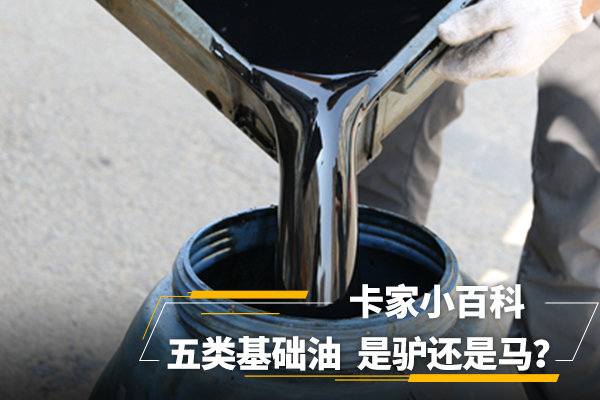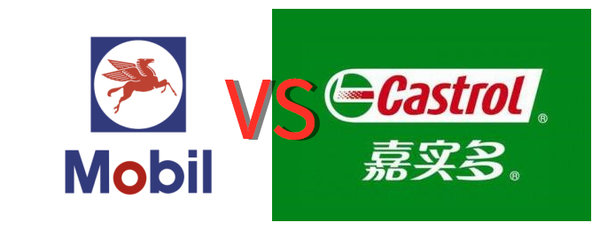04
2025
-
08
Truck Encyclopedia (24): 5 types of base oil Is it a donkey or a horse?
目前的市场上的基础油,从Group I到Group V分为五类:
Group I – Conventional solvent refined mineral base oils
Group IIt is a type of oil that we are talking about, that is, mineral oil.
Mineral oil is an engine oil refined by human beings from petroleum through fractionation, solvent extraction, dewaxing, hydrogenation.
At that time, the refining technology was mainly solvent refining, just like gutter oil refined from someone, with uneven quality and a large amount of impurities.
Group II——Hydropyrolysis mineral oil
This type of oil still belongs to the category of mineral oil, and the extracted refined mineral base oil is hydrotreated to make the mineral oil and hydrogen react directly under pressurized conditions.
The mineral oil produced in this way is more stable and has better low-temperature performance than the first class.
Group III——Hydroisomerized wax
This type of oil still belongs to the above hydrogenation technology, and the oil product undergoes an isomerization reaction under the action of the catalyst in the hydrogen environment, and isoalkanes are generated, becoming a relatively high-quality lubricating oil. Compared with Class I and Class II oils, the three types of oil have better high viscosity index and low pour point.
At present, most of the engine oil products sold on the market are composed of three types of oil.
Group IV——Poly α-olefins(PAO)
Poly α-olefin (PAO) is a patented technology of ExxonMobil, which simply puts it as a base oil made by refining gas gas in crude oil through complex chemical reactions such as polymerization and catalysis. Its essence is the stable molecular form of oil composition under human-controlled chemical reactions.
The properties of this oil are very stable, and its performance against high and low temperatures, oxidation resistance, and viscosity changes far exceeds that of mineral oils introduced above.
Group V——Lipid synthetic oils
Listening to the name, I feel that this oil and oil can have something to do with it. Yes, lipid synthetic oil is indeed made of animal and plant oils as raw materials, and dehydrated after esterification reaction under the action of catalysts.
The advantages of ester oils are very many, such as high viscosity index, larger viscosity index, and smaller evaporation loss.
But the biggest disadvantage of lipid synthetic oil is that it is expensive. In addition, it is unstable and easy to corrode when exposed to water, and is not compatible with rubber parts, and is also insulated from civilian vehicles, and is mostly used as racing oil.
It can be said that the stability and long-term life of engine oil are extremely dependent on the refining technology of base oil, and the performance of base oil is an extremely important part of affecting the quality of engine oil.
▎True and fake Li Kui Full synthesis or semi-synthesis?
Originally, the industry had a clear statement on fully synthetic base oils, namely:
Only Group IV PAO and Group V ester lubricants can be called "synthetic", and other Group I, II, and III oils cannot be called "synthetic" oils, no matter how they are processed, as long as they are extracted from mineral petroleum.
Therefore, before 1999, only lubricants with 100% Group IV or Group V base oil were generally printed with the word "100% synthetic" on the packaging.
However, Castrol has the words "100% Synthetic" printed on products made with a third type of carrier oil. This quickly attracted Mobil's dissatisfaction.
FullSynthetic means fully synthetic.
After all, Mobil sells whole steaks, while Castrol sells pork at the same price. At stake in billions of dollars, Mobil certainly didn't agree.
To this end, Mobil filed three charges against Castrol:
1. Castrol deliberately misled consumers into calling it a "synthetic" oil.
2. Castrol uses "inferior" products to deceive consumers.
3. Castrol uses the slogan "superior" any other engine oil in its advertising campaign.
After several rounds of trial and appeal, in 1999, it was ruled that Mobil's allegation that Castrol should not have printed the words "Full Synthetic" on products made with Class 3 base oils was not substantiated because "Full Synthetic" was a marketing word on the packaging, not a scientific one.
FullSynthetic means fully synthetic.
Since then, the concept of "synthesis" of lubricants has been blurred, which has led to the confusion of the definition of synthetic motor oil in the market now, so product slogans such as semi-synthetic, fully synthetic and even super fully synthetic have appeared.
● Editor's postscript
There is no best oil, only the best oil for each model and condition. As long as you don't buy counterfeit products, it is safest to choose engine oil according to the requirements of the vehicle maintenance manual and according to the requirements of the API and SAE grades.
As for what type of engine oil to choose, it is best to choose the manufacturer's high-end engine oil. It is of course best if you can know the specific composition ratio table of the base oil when buying engine oil.
Previous Page
Previous Page





